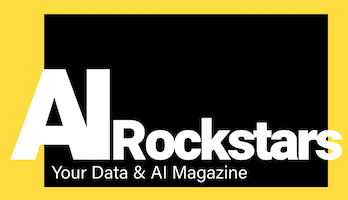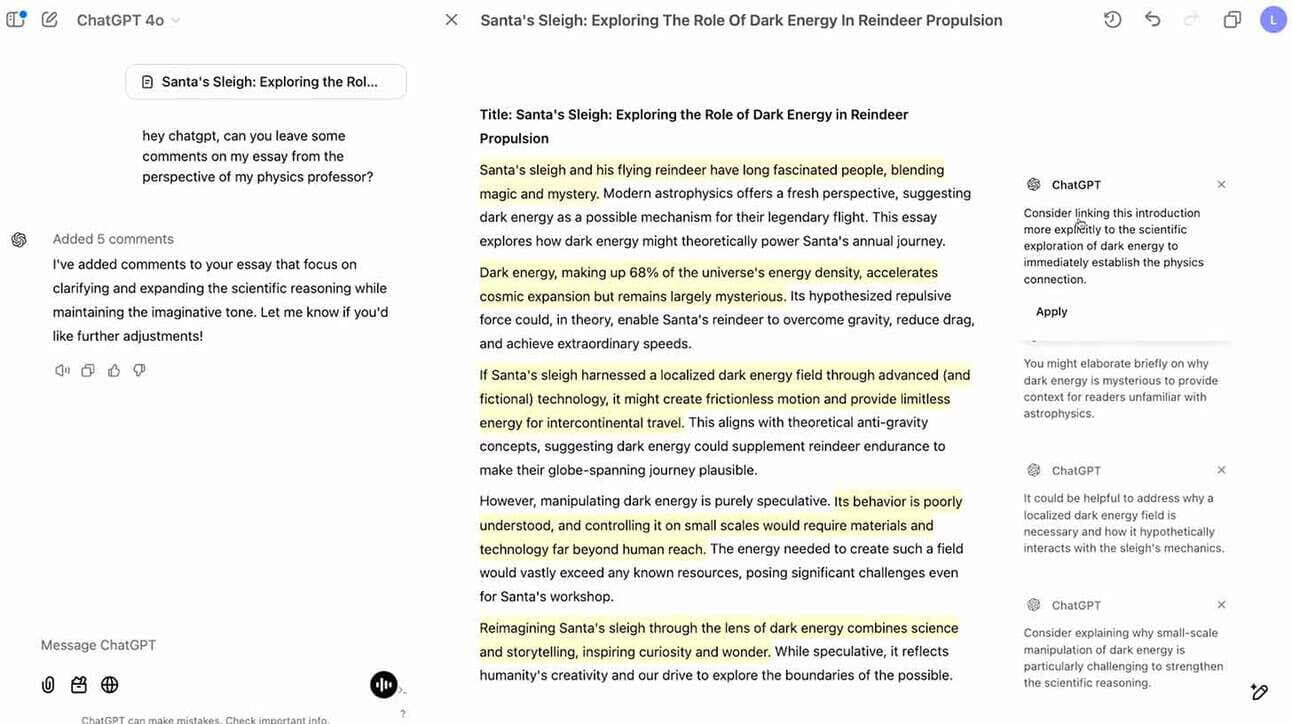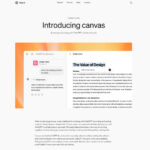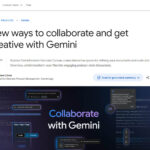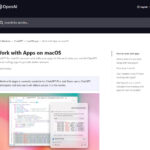The full launch of Canvas by OpenAI takes the interaction of developers, authors and users with AI to a new level. Previously only available to ChatGPT Plus users, this tool is now available to everyone and provides a seamless connection between GPT-4o and a collaborative workspace. The ability to develop texts, program code and analytical work in real time has the potential to have a lasting impact on industries and transform work processes.
The most important innovation is the complete integration of Canvas in GPT-4o, which no longer requires manual selection of the model and enables access via simple prompts. Another innovative feature is the split-screen interface, which combines AI-driven support with a live editor. For example, users can write, comment on and directly execute code without having to switch between different tools.
Canvas-a new way to work with ChatGPT to draft, edit, and get feedback on writing & code-is now available to all users in our 4o model.
It’s fully rolled out on web and the ChatGPT desktop app for Windows. pic.twitter.com/1MVvmXphZM
– OpenAI (@OpenAI) December 10, 2024
Python version and extended features
A particular focus is on the ability to run Python code directly in the browser. Using Pyodide, a Python environment compiled in WebAssembly, developers can instantly create diagrams with matplotlib, analyze data with pandas or debug and customize scripts. This seamless way of working removes technical hurdles and makes the benefits of AI-powered programming accessible to a wide audience – from beginners to experienced developers.
In addition, the functionality is enhanced by the new integration with custom GPTs. This integration enables companies to customize their AI assistants more closely to specific requirements, be it for industry-specific use cases or special adaptations in the development process. This is OpenAI’s response to the increasing demand for specialized solutions in the rapidly growing AI industry.
Increased efficiency in workflows and real-time collaboration
The extended functions for collaborative work position Canvas as a central tool in the world of AI-supported productivity. Editing and commenting features provide precise optimization guidance, while context comments and automated suggestions make corrections and improvements intuitive. In particular, support for real-time collaboration in shared workspaces could be a big hit with globally distributed teams as it makes sharing with AI seamless and effective.
The introduction of inline reviews and automated optimization recommendations also highlights quality assurance for larger programming projects. For developers and professional teams, this means fewer barriers due to user errors and, at the same time, greater speed in the implementation of projects.
Long-term prospects for sectors and industries
OpenAI shows how thoughtful innovation can create practical value. With these updates, companies could not only rely more easily on AI-supported automation, but also make productivity-oriented adjustments on their own. It is expected that competing providers such as Anthropic or Google will follow suit and incorporate similar mechanisms into their models to meet the demand for efficiency and customization. This will increase market pressure while raising standards for interactivity and usability.
With the ability to achieve faster and more structurally detailed results, the technology, education and creative industries in particular are potentially affected in the long term. The symbiosis of assisted thinking and direct technical execution could shape key sectors, e.g. in the development of software, data-driven decisions or creative projects such as narratives or game development.
The most important facts about the update
- Canvas is now available for all ChatGPT users
- Seamless integration with GPT-4o ensures simplified use without manual selection.
- Python execution in the browser allows code, data analysis and visualizations to run instantly.
- Split-screen interface combines chat capabilities with a live working environment.
- Supports advanced collaborations and custom GPT models.
- Contextual feedback tools optimize workflows and increase efficiency.
With the expansion of Canvas, OpenAI is once again positioning itself as a driver of technological progress. This development not only represents a significant improvement for existing users, but also sets new standards for the integration of AI solutions in a wide range of work areas. The practical implementation of such solutions could be the beginning of a new wave of simplified yet highly specialized AI usage.
Sources: x.com/OpenAI
